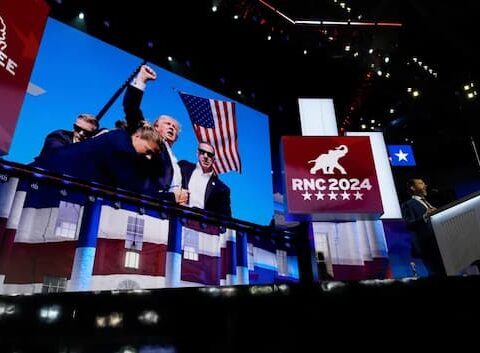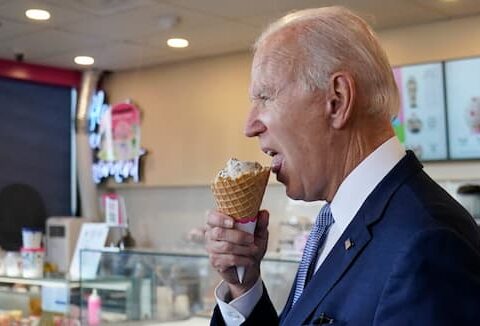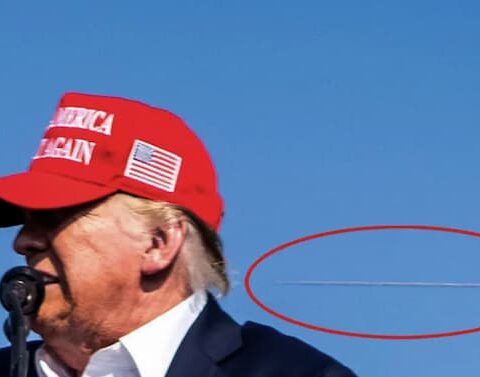Watching the memorial service to Muhammad Ali on Friday was at times, as you’d expect, very poignant.
But it was more than that: this was Muhammad Ali’s planned, final statement to the world. A man – once so eloquent, verbose and decisive, but who had been slowly robbed of his ability to speak over the last years of his life – had thought meaningfully about how he would speak for the last time and what it would be saying.
It is clear that the event – carefully managed by the Ali family and based on Ali’s own instructions – was intended to create a moment of multi-cultural, multi-faith solidarity and unity.
Ali clearly wanted for his final act to be as a unifier and bridge-builder, bringing together all elements of American society.
What was particularly interesting about the service is that much of it seemed less about Ali and more about society; again, probably according to his own wishes.
An event to pay tribute to the greatest sporting icon of all time – an event that (as per Ali’s instructions) bridged culture, race and religion, bringing together black, white, Asian, Native American, Christian, Jew, Muslim, Buddhist, in a moment of solidarity and unity. That was what Ali had wanted for his final act – to bring everyone together and to be, even in death, a reconciler and a peace-maker. Not just for black America and not even just for Islam, but for everyone.
He wanted to demonstrate that he HIMSELF is a symbol of American unity and of cultural merging: and that by focusing on him at this moment, everyone, from all different sections of society, could find there meeting-point and solidarity – even if it was just for a moment in time.
The service brought together Jewish rabbis, Muslim scholars, Christian pastors, Native American representatives, and just about everyone, including a former US President and a Jewish comedy legend who referred wholeheartedly to a Sunni Muslim black American as his ‘big brother’.
There were luminaries and famous people in attendance of course; such as George Foreman, Will Smith, Mike Tyson, the Reverend Jesse Jackson, and numerous others. King Abdullah II of Jordan flew to America specifically to attend. Turkey’s President Erdogan also came especially; but just to demonstrate that the Ali family were not simply pandering or allowing others to use the memorial for their own purposes, Erdogan was barred from making a speech and barred also from laying cloth on Ali’s casket. The Turkish president was apparently outraged by this and left and flew home in a huff.
In any case, this occasion wasn’t about the VIPs or famous faces; if it was, more of them would’ve been invited to speak. It was more about what Ali wanted to be communicated and represented.
Two of the most powerful contributions were by a rabbi who passionately called on Americans to stop demonising Muslims for the actions of a small minority and a young Muslim teenager who had been bullied all her life and repeatedly told to ‘go back to her country’.
This all was clearly intended to fight against the division and hate in American society and to bring all aspects of American culture into a rare solidarity: specifically, at a time when there are increasingly right-wing elements rallying around the Donald Trump presidential campaign, but also a time where race relations are strained in some areas, where there is a constant presence of Islamophobia and Anti-Semitism, and mistrust between different sections of society. Even Chief Oren Lyons, the Faithkeeper of the Turtle Clan of the Onondaga Nation, translated comments from Chief Sidney Hill, Tadodaho of Onondaga Indian Nation.
It is obvious that the divisive figure of Donald Trump and the rise of right-wing politics was being directly addressed. One of Billy Crystal’s last remarks brought the crowd to its feet; “[He] taught us that life is best when you build bridges between people and not walls.”
It has to be said that in this passed week or so, moderate, peaceful Sunni Islam has actually had probably the best coverage – in PR terms – that it has ever had in America.
This being in the wake of Muhammad Ali’s death and, in particular, the funeral and memorial service.
On Friday, the longstanding post-9/11 narrative of Islam as an enemy of American values was put on hold – because if America wanted to celebrate or say goodbye to its greatest ever sporting champion, it had to do it HIS way. That meant millions of people were tuned in to watch a Muslim prayer in Arabic, and then translated to English by a child of Syrian refugees. They got to watch Jewish prayers too, and Buddhist chants, and Christian speakers.
And Billy Crystal.
It might’ve been, as I said, the best, most positive and sympathetic PR Islam had ever had in America.
This entire memorial was in fact Ali’s parting assault on the negative and worrying trends and forces in American society and politics at this time; and a powerful counter-offensive against the march of the extreme right-wing. How fitting that Ali, who spent much of his life fighting against the tides of negative trends and forces in American society, would make his own death one more round in that fight: different times, different particulars, but same Ali, same ‘Universal Soldier of Justice’ as Bill Clinton put it.
And yet, contrary to some negative perceptions of Ali in the white, conservative community even today, this wasn’t at all geared towards blaming white American conservatives; indeed, Lonnie Ali did the opposite and spoke of the need for understanding and communication between, for example, young African-American men and the police and didn’t show the slightest partiality or bias.
Some people made much of Bill Clinton‘s presence and saw it as a cynical attempt for the Ali memorial to endorse the Hillary campaign. Yet there were Republican political figures invited to speak too.
Ali’s wife, Lonnie Ali, is probably one of the most dignified, compelling women you’ll ever see in your life. A key part of her eulogy also spoke powerfully and directly about the current state of society. She chose, brilliantly, to remind everyone that it was the white policeman Joe Martin who had been the one to set the 12-year-old Cassius Clay on his path to greatness.
We know that story – the story of how the young Ali had his bicycle stolen and went to local cop Joe Martin, boasting that he would give the thief ‘a whupping’ when he caught him: Martin suggested the young boy would be best served learning how to fight first. But the powerful twist in the familiar story was Lonnie Ali linking that story to ‘Black Lives Matter’ and the hostility between violent cops and young black men in America.
“America must never forget that when a cop and an inner city kid talk to each other – miracles can happen,” she said.
What is so beautiful about her statement is that, for all the wrongheaded comments going around about Ali being a divisive or ‘anti-white’ figure (which is really just people deliberately failing to account for time and context), this sentiment is the precise opposite: Lonnie Ali didn’t blame the police or talk about racism – instead she highlighted the need for understanding, communication and trust.
A recitation from the Koran by Imam Hamzah Abdul Malik began the ceremony, in accordance with Ali’s wishes. Ayah Kutman, a second-generation Syrian immigrant, then translated into English what had just been read in Arabic. None of this is accidental; a child of Syrian refugees was very deliberately chosen to read the translation, because Ali and his family have used this occasion to speak deliberately and meaningfully to America and the world.
The two brief contributions from Ali’s daughter Rasheda and the younger Alessandra DiNicola were naturally moving. But it was University of Louisville student, Natasha Mundkur, who was the most emotional. The 19-year-old Muslim, who was severely bullied when she was younger, called a terrorist, had rocks thrown at her and was constantly told to go back to her own country, credited Ali with helping her find her voice.
Ali, of course, aside from being a powerful figure in black politics and culture, was also probably the greatest ambassador for the traditional moderate, peace-loving Islam there has ever been.
Ambassador Shabazz (eldest of six daughters born to Malcolm X) said that Ali was the last of several men “bequeathed” to her by her father and expressed tremendous sadness that “the last” of those great men from that time was now gone. Her inclusion in the memorial – presumably at Ali’s request – is all the more moving in the context of Ali’s tragic relationship with Malcolm X and his stated regret at how things had ended between them.
But it was a Rabbi who made possibly the most noticeable speech: while not the most poignant in terms of a memorial to Ali, it was nevertheless the one that will be most remembered for the longest.
Rabbi Michael Lerner, the editor of Tikkun Magazine, received a standing ovation for his impassioned remarks that touched on everything from drone warfare to income inequality, mass incarceration and banning corporate and private money from politics. He also called passionately upon America to stop demonising peaceful Muslims just because of the crimes of a tiny minority of extremists. “We stand in solidarity with the Islamic community around the world,” he said in his opening.
His speech will have resonated around the world for all sorts of reasons.
Lerner, for the record, was indicted alongside Ali decades ago for his own non-violent protest against the Vietnam War.
_______________
I don’t know how many people were at the memorial service, nor how many were watching on TV or the Internet. But Louisville police estimate that more than 100,000 people turned out for the funeral procession.
I hope – and imagine – that this memorial did play to a very large number of viewers: because they needed to see this.
And in fact those who needed to see this the most were probably those who least cared about seeing it. But I hope they did see it. Because this event, more than anything in recent memory that I can think of, could and should do a great deal of good for America and for people’s thinking and perception.
In terms of speaking of Ali’s own incomparable significance, Dr Kevin Cosby, the senior pastor of St Stephen Church and president of Simmons College of Kentucky, discussed the Civil Rights struggle that had provided African-Americans with “a sense of somebody-ness”. He then name-checked a procession of important African-American figures in that context, including Joe Louis and Rosa Parks, before pausing and adding “And then from Louisville, emerged a silver-tongued poet who took the ethos of somebody-ness to unheard-of heights…”
Those present cheered and applauded. Many of us will be cheering and applauding Muhammad Ali for many years yet.




